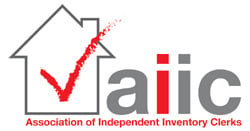
9:48 AM, 5th May 2011, About 13 years ago 1
Text Size
 Pat Barber, Chair of the Association of Independent Inventory Clerks (AIIC), explains how wear and tear disputes between landlords and tenants could be avoided by using independent property inventory clerks.
Pat Barber, Chair of the Association of Independent Inventory Clerks (AIIC), explains how wear and tear disputes between landlords and tenants could be avoided by using independent property inventory clerks.
Landlords and tenants have different expectations when it comes to fair wear and tear issues. It’s no wonder that so many tenancies end in dispute. Tenants must of course take responsibility for damage or additional cleaning, but the whole issue of just what is fair wear and tear and what is chargeable can be the biggest source of disagreement at check out.
Landlords need to be realistic about tenants and wear and tear, remembering that the property is a business transaction and as such, reasonable wear and tear damage to a property needs to be recognised and accepted as part of the rental agreement.
A well trained inventory professional will have detailed knowledge about the normal life expectancy of the furniture, fixtures and fittings and can advise both the landlord and tenant on the appropriate action needed at the end of the tenancy.
Before making recommending charges and replacements your inventory clerk will consider the age of an item, original quality and type of tenancy. She/he will also calculate the rules of depreciation and make allowance for any other contributing factors – all of which help to avoid protracted disputes.
Nothing lasts forever and generally we get what we pay for when buying things like bed linen and kitchen equipment. The general rule is that better quality usually means longer life expectancy. If you think your £10 set of saucepans should last for five years then you could be in for a shock.
Six months: some things only last a single tenancy – wooden and plastic kitchen utensils, plastic toilet brushes, dried flower arrangements, washing up brushes, rubber bath mats and mop heads – even polyester pillows should be treated as expendable items.
Twelve months: wicker waste bins, cheap chopping boards, oven gloves, paper lamp shades and fibre pillow and mattress covers – all will be coming to the end of their working life.
Three years: time to replace polycotton bed linen, duvets and even tablecloths. Also plastic dustbins, garden furniture cushions, net curtains (depending on their location) and even inexpensive cutlery.
These are only a few examples. A good inventory clerk will have an extensive knowledge of the life span of just about everything in your property, including the décor and can advise you accordingly at the end of the tenancy. The law says that allowances must be made for tenants to have reasonable use of the property, taking into account time and fair wear and tear. The length of a tenancy will determine what allowance is made for wear and tear. However, the tenant has a responsibility to take care of the property and at the end of a tenancy return it in a condition consistent with normal fair wear and tear.
Clearly, landlords can’t expect the property to be put into better order at the end of a tenancy than it was in at the start at the tenants expense. To avoid disputes, it’s essential that Landlords have clear and accurate descriptions of the condition of the property at the start of a tenancy to establish how the property has deteriorated during the tenancy.
As Charles Dickens wrote – “Take nothing on its looks, take everything on evidence. There’s no better rule.”
Members of the Association of Independent Inventory Clerks are experts in assessing fair wear and tear and have the knowledge and experience to take into account all factors and make a reasonable judgement as to whether something is fair wear and tear or not.
AIIC members are kept fully informed of current legislation and the evolution of fair wear and tear issues so their knowledge will enable them to make a fair and reasonable assessment of the condition of the property at both the start and end of the tenancy. The AIIC is committed to excellence and professionalism in the property inventory process and works hard to ensure that all landlords, tenants and letting agents understand the importance and benefits of professionally completed property inventories.
Patricia Barber is the Chairman of The Association of Independent Inventory Clerks and has 25 years experience in the lettings industry. Her inventory company is based in Reading, Berkshire (ISIS Property Services) and she is author of ‘First Time Tenant’ (Right Way Books).
For further information, please visit www.theaiic.co.uk

13:43 PM, 7th May 2011, About 13 years ago
mark its good to see a general networking site for landlords investers etc
i am based in the north east of scotland and sell property to investers with sitting tennants fully furnished and up to current regs
i am also landlords agent for 150 properties without my own small portfolio
as well as being a mortgage adviser
keep up the good work
louis